
OR
Editorial
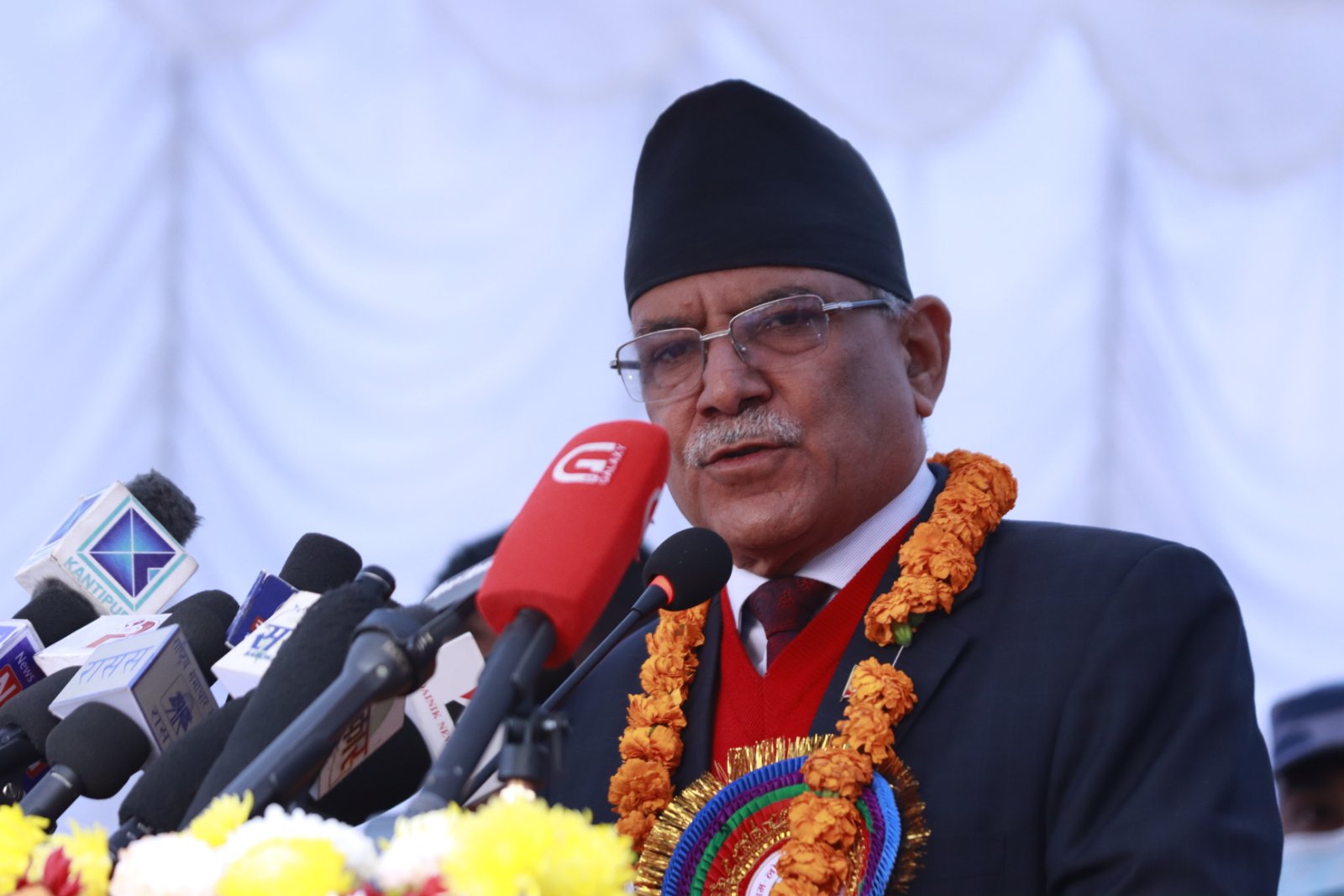
A jumbo cabinet is not a popular political concept in any country and Nepal is not an exception. Similarly, single-party governments are considered better than coalition governments for various reasons. There are some clear disadvantages and difficulties of a jumbo government. In the first place, a jumbo cabinet increases the administrative costs of the country, because a larger cabinet requires more resources to operate, including staff and funding for salaries, benefits and other expenses. This can put a strain on the country’s budget and potentially lead to increased taxes or other measures to fund the additional expenses. Similarly, coalition governments increase complexity because, with more ministers and more parties involved, decision-making can become more complex and time-consuming. And it may be difficult to arrive at consensus on key issues. Likewise, a bloated government means reduced efficiency as ministers may have less time to focus on their individual responsibilities due to the need to coordinate with other ministries and parties. Also, political scientists agree that a coalition government is more prone to corruption than a single-party government.
But it seems that Prime Minister Pushpa Kamal Dahal, who surprised many and became Nepal’s prime minister for a third time, will be forced to take this unpopular course and form a jumbo, coalition government. When a government is formed by a coalition of different political parties, the sharing of key ministerial positions among all parties in the coalition is expected and as a result, we have a larger number of ministers than a single-party government would have. But the Dahal-led cabinet is going to be, it seems, as big as it is constitutionally possible for it to be. His current eight-member cabinet which already has three deputy prime ministers (DPMs) will most likely have at least a couple of DPMs more. Four of his cabinet members are still without any portfolio. Most likely, Dahal will perhaps not try to expand his cabinet before January 10, the day he is scheduled to face a vote of confidence in parliament. He would like to appoint ministers from other parties like Rastriya Swatantra Party, Rastriya Prajatantra Party and Janata Samajbadi Party, to name a few, only after receiving their votes of trust. And indeed, there seems to be a competition of sorts among the parties to join the government. As the number of those wanting to join the government is large, the management of the same is going to be a huge challenge for Prime Minister Dahal.
To meet the challenge of having everybody on board, it is said that PM Dahal is considering the unpopular option of splitting the present 22 ministries into 25. This would be a complete disregard to the suggestions of the experts who prescribe fewer ministries and a small and smart cabinet. To create one new ministry means an extra expenditure of at least one billion rupees. That way, the creation of three more ministries is sure to cost at least Rs 3 billion. The country is already in a situation where it finds itself unable to meet the recurrent expenditure. In such a situation, creating three extra ministries will put the national exchequer under unnecessary strain. Also, those three billion rupees could be provided to those sectors where the state’s spending has not been enough, for example health and education. That the annual budget Nepal has been allocating for the health and education sectors is not enough has been a long-standing complaint. So these three billion rupees that Dahal will have to spend on the three new ministries he is planning to create could be spent to build good schools and colleges or hospitals. Here, Dahal can learn from Neighboring India which has, comparatively, a smaller central cabinet. The central government in India, which is more than 22 times bigger than Nepal in terms of area and has over 40 times bigger population than Nepal’s, has 58 ministries. But the number of ministers in the Union Government in India at present is only 29! PM Dahal can certainly learn a lesson or two from India and the government there if he wants to avoid forming a jumbo cabinet.
You May Like This
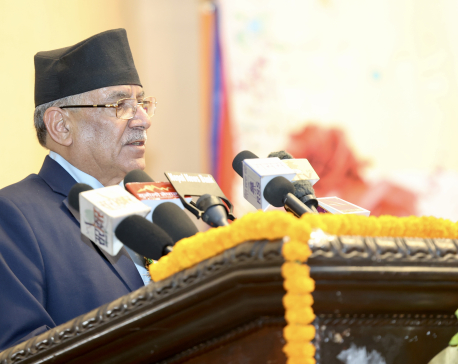
Economic situation not worrisome; efforts on for improvements: PM Dahal
KATHMANDU, May 7: Prime Minister Pushpa Kamal Dahal has said the present economic situation of the country is not worrisome... Read More...
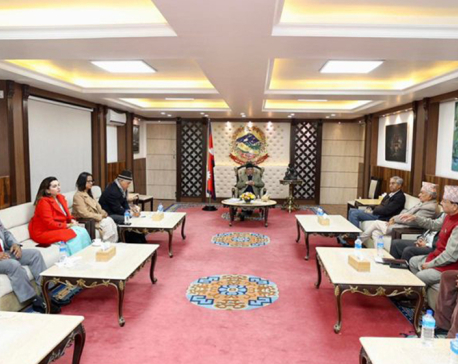
Ruling parties to discuss 'power-sharing' deal after PM's vote of confidence
KATHMANDU, March 19: Various 10 ruling coalition partners have decided to discuss the power sharing issue only after Prime Minister... Read More...
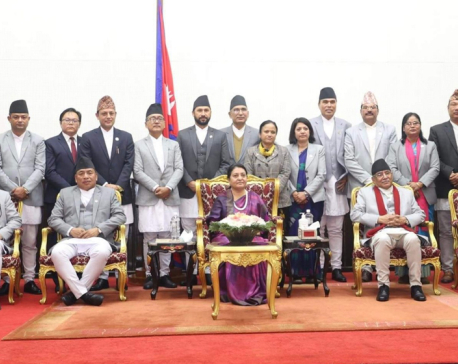
Deliver on Promises
After weeks of delay, Prime Minister Pushpa Kamal Dahal on Tuesday expanded his cabinet, adding several new members to his... Read More...


Just In
- 1,600 participants confirmed for Nepal Investment Summit
- Ilam-2 by-elections held peacefully, vote count likely to start tonight
- NEA schedules five-day power cut across Kathmandu Valley for underground cable installation
- Hundreds of passengers including foreign tourists in distress as poor visibility halts flights to and from PRIA
- Nepal clinches thrilling victory over West Indies 'A' in T20 cricket match
- Capital Market Struggle Committee stages protest demanding protection of domestic investors (Photo Feature)
- Captain Paudel scores half-century in T20 match against West Indies 'A'
- Nine youths from Tanahu allegedly joining Russian army out of family contact for months











-1200x560-wm_20240427144118.jpg)
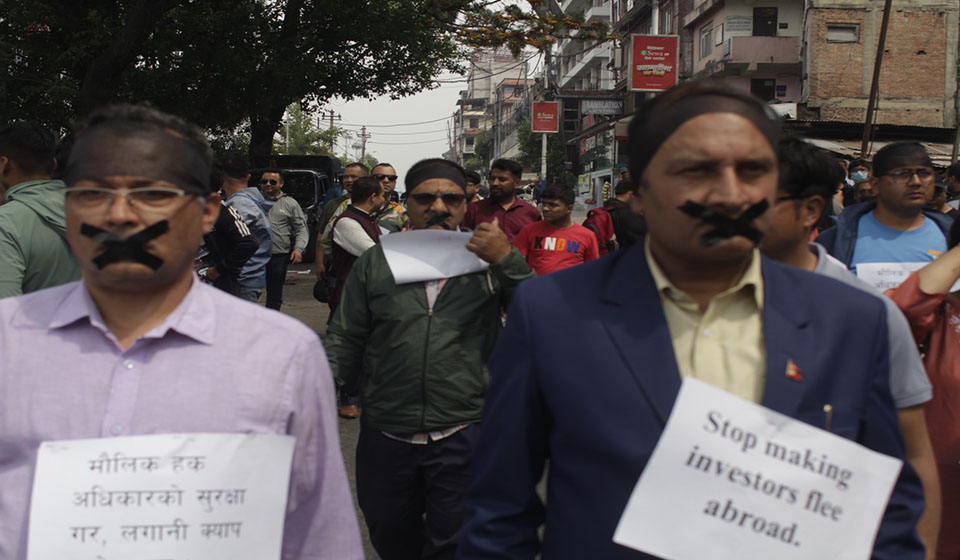
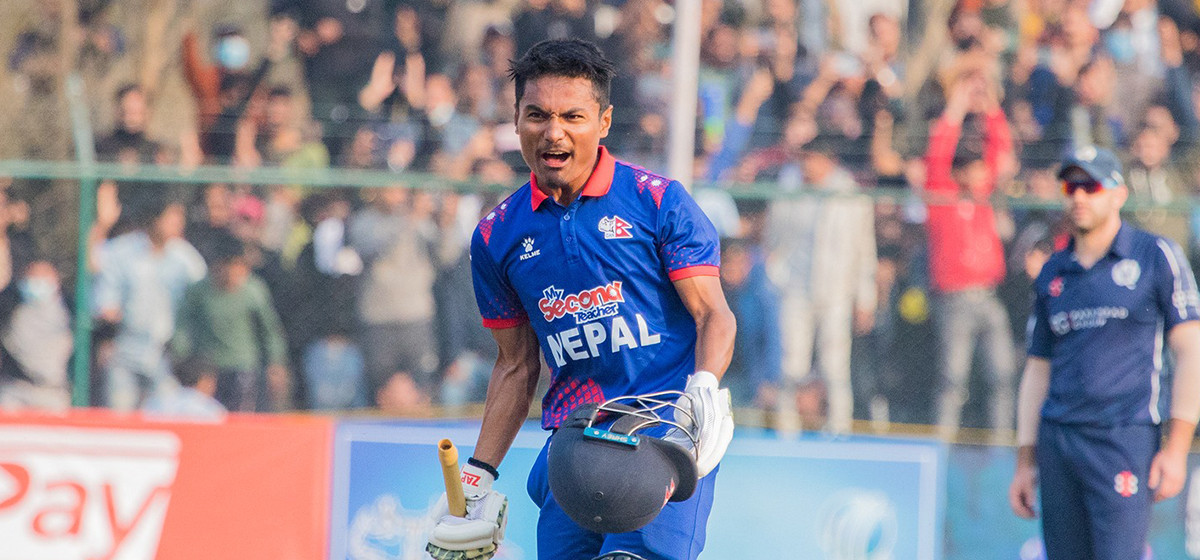
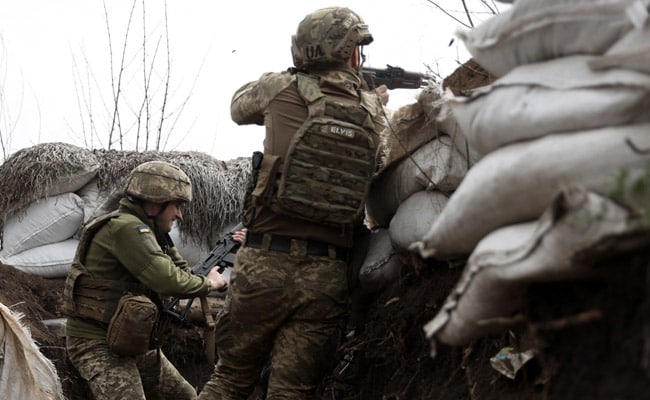
Leave A Comment